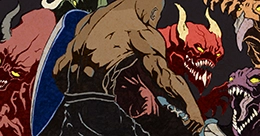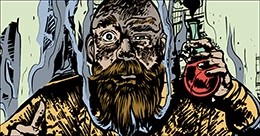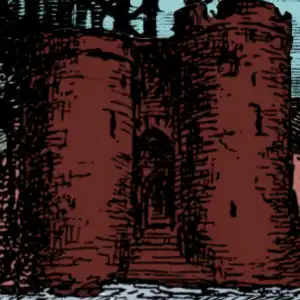Sithir

~ Kaless Sithir
From the journal of Proelia Summus
6,012 DA
From the journal of Proelia Summus
6,012 DA
Description
Life, in its truest form, is a grand game, governed by forces beyond mortal comprehension. To gamble with it, to strive to tilt the scales in one's favor, is the essence of Sithir's teachings. The god of commerce, luck, secrecy, and thievery, Sithir urges his followers to stay loyal to those they love, and guard their secrets as if they were their own. As the first elven emperor, Sithir is credited with establishing the institution of commerce, and his image still adorns coins today. Supporters of Sithir are ubiquitous, from vendors dedicating their lives to trading goods, to thieves redistributing wealth from the affluent to the less fortunate, to blademasters risking their lives for a bit of coin. Sithir's connection to the Calling is largely attributed to his relationship with his wife, the goddess Serithell. Though Sithir himself never openly espoused the faith, followers of the blademaster path of Ael'mashtir regard Sithir as their guide. Rumors have always existed of Sithir's involvement with secret societies influencing the world. Whether or not such stories hold truth, similar organizations offer prayers to the god for protection and success in their endeavors.
Modern Depiction
Sithir is typically portrayed as a handsome elf with dark hair, a sly smile, and a laid-back demeanor. He is often shown engaging in trade or listening to secrets. In theatrical plays, Sithir is frequently the catalyst for events, and is closely associated with fate. Elves possess actual paintings and writings from Sithir, copies of which are common in most elven homes. In the Library of Asundeai, Song Stones depict Sithir outlining his preliminary theories on commerce, its purpose, and potential exploits.
Tenets of Sithir
 | Life is a game to be won; gamble freely, but be wise in hedging your bets. |
 | Demand compensation for your time; if it costs you, it should cost them. |
 | Secrets are precious; treat them as your own children, never betraying the trust bestowed upon you. |
 | Embrace the Calling to reach your full potential; commit yourself fully to your endeavors or refrain from them entirely. |
 | Commerce exists, so the less fortunate will steal; seize opportunities to impart valuable lessons. |
Sithir Worshiping Adventurers
Merchants, gamblers, thieves, and many elves revere Sithir for his contributions to commerce and elven history. Clerics and paladins of Sithir, known as Mummers, often bear the burden of others' secrets, either by listening and keeping them confidential, or by eliminating those who cannot be trusted with such knowledge. Some select groups of thieves operate as a delivery system of black markets scattered across the world in the name of the god.
God of Commerce, Luck, Secrecy, & Thievery
Why would you choose this faith?
Those who follow the path of the blade, venture into dark places, or engage in trade might be drawn to Sithir's teachings. His faith also appeals to those who appreciate the art of the gamble, who find value in secrets, or who see the world as a grand game to be played and won.
Bards, clerics, fighters, paladins, and rogues are the most common among Sithir worshiping adventurers.
Backgrounds
Characters from different backgrounds may find themselves following the path of Sithir, but elves from the Leng Empire make up the largest gatherings of followers.
Holy Symbol
The Crooked Key, a common symbol of Sithir, signifies fortune for many. Often found on coinage alongside the god's likeness, the symbol is also used by thieves to mark safe spaces or potential targets. Most avoid openly wearing the Crooked Key, treating it as a token of superstition.
Associated Religions
Sithir is followed by many elves, and is commonly associated with the Calling. He is also present in the Covenant and the Path of the Ancestors.






























